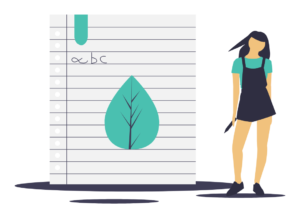
Helping to Make Alzheimer’s a Memory of the Past
Jennifer was thrown into the caregiver role when her father passed at the age of 50 and her mother's Alzheimer’s was getting more severe.

Frances was enjoying life full of her favorite hobbies while living in Oahu, Hawaii when her mother was diagnosed with Alzheimer's. She shares the wisdom she found in support groups, how she managed the internal demands of caregiving, and how she found compassion and dignity through poetry. This is Frances's story.
As told to Open Caregiving and lightly edited to enhance readability while preserving the author’s voice.
Aloha, everyone. I’m Frances, born and raised in a remote village in Hawaii that was twice destroyed by lava and completely covered two years ago. I now live in Sacramento, California.
I was a caregiver for my mother in Hawaii, and she died in 2002. She lived on the Big Island of Hawaii, while I lived on Oahu. After serious sibling problems, I moved her to Honolulu, where I became her primary caregiver.
For over twenty years I have spoken at conferences nationwide using poetry, my books, and my experiences of turning caregiving into one with compassion and dignity.
I have published three poetry books on caregiving for adults and illustrated a children’s book.
I was working at the district office of the Hawaii Department of Education when my mother was diagnosed with Alzheimer’s. On weekends, I was working on my golf game and taking flute lessons. I was single and expected a responsibility-free life. I gave up both and never returned to golf or the flute without regrets.
The signs of her Alzheimer’s were there with her repetitive questions, but I ignored them until a neighbor told me they found her wandering in the neighborhood, unable to find her house.
I was the middle child of five children and perhaps because I was the only single “child” among five children, I spent more time with my mother who was widowed in 1959. I told her once I would care for her when she needed help, and she immediately made me the trustee of her living trust.
When she was diagnosed and care was needed, certain siblings refuted her trust fund. This was when I took her home with me and all communications went through her attorney.
This sibling disconnect created more grief than caregiving. It made me stronger as a caregiver, knowing I had to be five times as caring and compassionate. Family that gathers around holiday tables may not be the same family when it comes to taking care of a family member.
Most of the problems of caregivers cannot be resolved in medical offices because they are human problems. So the resolve resides inside of us. For me, writing poetry was therapy. It helped so much.
I facilitated poetry writing support groups for the Alzheimer’s Association in Hawaii and continue to do so in California. Writing poetry, telling stories to reinvent the realities before me, and to kick in humor were part of the resolve.
More than the physical demands, the emotional and psychological internal demands took more of a toll, leaving a constant lump of anxieties in the pit of my stomach to the very end.
Writing poems. I could often reinvent the realities before me to another to benefit both my mother and myself. Becoming a poet/caregiver made all the difference in the world than being a caregiver. I felt such joy each time a poem came to be written.
I read a lot, another passion. I’m also very vain, so I kept up with the latest fashion. I dressed up to facilitate support groups, and caregivers who attended in sweatpants, shorts and tees, some without makeup, gradually began to dress up, too. I could sense the return of each person.
Support groups. I felt so scared and helpless and ignorant of the disease, so I immediately joined a support group through the Alzheimer’s Association. In support groups, there are caregivers giving care to loved ones in all stages of the disease, and they prepared me for what was in store for my mother and myself. There is so much wisdom from experienced caregivers.
One caution: Be selective of a support group that will meet your needs. A support group where it becomes a dumping ground for problems won’t be helpful. You want a support group where you walk in with your problems and you walk out free and enlightened. A support group that is ongoing between sessions, poetry writing in my case, often took care of the isolation.
Stay connected to the one you’re caring for. Be in the present, let go of past relationships if they are negative, look at the person in front of you needing your best of care, and meet that need the best you can. In my culture, physical affection is not practiced. I would have been more affectionate.
Yes, briefly, I’d like to share some insights I gathered:
Why write poetry?
I walked into my mother’s bathroom and saw bowel movement all over the floor. My first experience caused me to do the ridiculous. I used my toothbrush to clean the floor. In that instant, I also said, “Maybe there is a poem here.” I became a poet/caregiver, looking for images and words, deciding on how to capture that moment. I chose glamour. Here is that poem: A Feather Boa and a Toothbrush
I had a decision to make. Do I see myself as a poor caregiver? Do I use humor? My decision becomes the new truth, and to be able to create an art form in the midst of chaos is a pretty good place to be. Read some of my other poems below:
Emily Dickinson, I Am Somebody
The Perfect Caregiver
Omoiyare (Thinking of Others First)
Story Telling
I told myself a lot of stories to benefit both of us. One morning, on a tight schedule, I walked my mother out the door to her adult care when I smelled bowel movement. I saw bowel movement over her toes. Instead of being upset, I told myself, “I think Someone up there doesn’t want us on the freeway right now for safety reasons.” I said thank you and, with gratitude, started the day all over again.
Whenever her behavior was negative, uncooperative, or bizarre, I told myself she was trying her best to retain her disappearing dignity and identity. How can I not feel compassion?
Sometimes when I felt like a wet rag, I told myself this could be her last day on earth. How could I not make it the best day with patience, love, and dignity?
We live in two normal worlds. Her world is as normal to her as mine is to me. The conflict begins when I think my world is the only normal one, and I try to bring her into mine.
In her world, she is asking a question for the first time. In my world, for the tenth time. I enter her world and answer her as though it is being asked for the first time.
I visited her in the nursing facility and she said that her mother visited her. In my world, her mother had been gone for years. Rather than creating conflict by saying, “No, she’s been dead for many years,” I enter her world and ask if she had a good visit. If I’m lucky, she’ll tell me about their conversation.
One note to post caregivers: Remorse, regret, and hindsight are wisdom, not cause for grief. And you are one normal and healthy human being.
Frances H. Kakugawa is an award-winning author who has written 16 books, including three books on caregiving and a children’s book about a grandmother who has dementia. Through her writings, workshops, school visits, readings and speaking engagements, she helps others embrace caregiving and, through their writing, discover their own humanity.
Learn more about Frances and Wordsworth, the little Hawaiian mouse who loves poetry, at francesk.org.
It is 3 a.m.
I am on my hands and knees
With toothbrush in one hand,
A glass of hot tap water in my other,
Scrubbing BM off my mother’s
Bathroom floor.
Before a flicker of self pity can set in,
A vivid image enters my mind,
An image of a scarlet feather boa
Impulsively bought from Neiman Marcus,
Delicately wrapped in white tissue
Waiting in my cedar chest
For some enchanted evening.
The contrast between my illusional lifestyle of feather boas,
Opium perfume and black velvet and my own reality
Of toothbrushes, bathroom tiles and BM at 3 a.m.
Overwhelms me with silent laughter.
Frances H. Kakugawa, “I Am Somebody: Bringing Dignity and Compassion to Alzheimers’ Caregiving”
Sometimes I gave voice to my mother and asked, “What would she say if she could speak?”
If I could speak, this is what
My voice would say:
Do not let this thief scare you away.
Do not let this thief intimidate you
Into thinking I am no longer here.
When you see me, tell me quickly
Who you are.
Do not ask me, “Do you know me?”
Help me retain my own dignity
By not forcing me to say,
“No, I don’t know who you are.”
Save my face by greeting me
With your name even if the thief
Has stolen all that from me.
It shames me to such indignities
To say I do not know you,
Help me in this game of pretension
That this thief has not stolen
Your name from me.
My words have all forsaken me,
My thoughts are all gone.
But do not let this thief
Forsake you from me.
Speak to me for I am still here.
I understand hugs and smiles
And loving kindness.
Speak to me and not around me.
I am not she or her or even a room number.
I am still here.
When I soil my clothing, or do something absurd
Do not tell me, “Why didn’t you….?”
If I could, I would.
I know I have turned
Into a monstrous baby,
If I could, I would not allow this thief
To let you live and see
What he has stolen from me.
I know my repeated questions
Are like a record player gone bad,
But my words are gone
And this is the only way I know
To make contact with you.
It is my sole way of saying,
Yes, I know you are here.
This thief has stolen
Everything else.
Except for these questions
And soon they, too, will be stolen away.
Yes, I am still here.
Help me retain my dignity
In this shell of a woman I have become.
In my world of silence.
I am still here.
Oh, I am still here.
Frances H. Kakugawa, “I Am Somebody: Bringing Dignity and Compassion to Alzheimers’ Caregiving”
Certain lines from my own poetry came to haunt me when I needed them most. When I found myself questioning her behavior, I could hear my own lines spoken in her voice say, “If I could, I would.”
Sometimes, I gave myself permission to be imperfect.
We dance the imperfect dance.
We trip over our toes,
Waltzing to the Samba.
Four step trot or Cha Cha Cha
It’s still the 1 2 3 step
To whatever plays the music.
Perfect in our imperfections.
We miss doctor’s appointments,
Wash yesterday’s dishes today.
We leave towels in the washer
Stiff and dry, unlike ads from Downy,
In the morning after.
We are so perfect in our imperfections,
There is green fluffy mold atop yogurt,
Wilted lettuce, dehydrated onions –
That no longer bring tears.
Spam and Campbell soup cans
Expired dates like former Exes.
The real stuff keeps calling –
BM still smeared on bathroom walls
Urine soaked sheets on bedroom floor,
Bandages curling up at the edges
Toenails tearing through new socks.
Medicare calls keep blinking.
We take our screams,
The guilt, remorse, regrets,
The I should haves, I shouldn’t haves
To the tangerine trees
Who spread their branches knowingly
Offering us
Fruits beyond expectations.
We are caregivers,
Perfect in our imperfections.
Frances H Kakugawa
There will be no Nobel Prize for what we do,
no trip to Sweden, no medals, gold, silver or bronze.
But here we stand, Caregivers, past and present, preserving
for all generations, this lesson learned in what it means
to be human…
Once we abandon this heritage, all the years spent,
day after day, year after year, in the shadow of the thief…
all would have been for naught. Bruised, frayed, tattered,
like a flag after battle, we stand
with Human Kindness and Compassion,
a legacy for ages hence.
Frances H Kakugawa

Jennifer was thrown into the caregiver role when her father passed at the age of 50 and her mother's Alzheimer’s was getting more severe.

Months before Alice's mother passed, her husband was diagnosed with mild cognitive impairment (MCI).

Catherine was a long-distance caregiver and had to quit her corporate attorney job to care for her father who was living Alzheimer's.